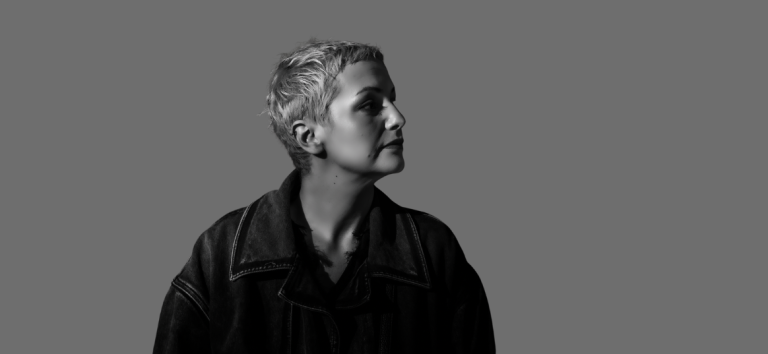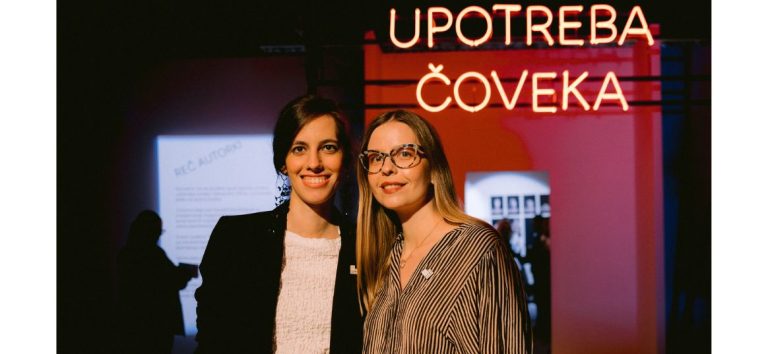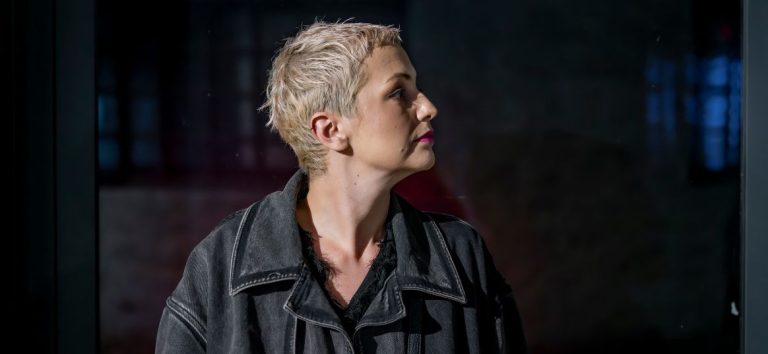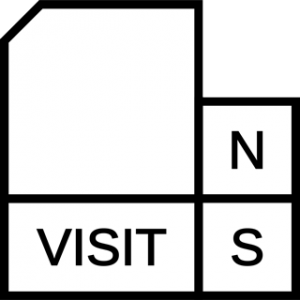‘I want my music to bring world peace and intergalactic harmony’, deems the composer Dragana Jovanović, a professor at the Faculty of Music, whose work we will get to enjoy within the play Zeniteum :: 2022, for which she composed the music for. We talked with her about the play she is preparing, cooperation with the director Dragan Živadinov on this demanding project, personal creativity and success, but also the challenges that come with working with students.
Dragana Jovanović is an award-winning artist who made her first musical steps at the faculty where she still teaches to this day, and in addition to her pedagogical work, she has an impressive and long career as a composer. Within Doček and the opening ceremony of the European Capital of Culture, the play Zeniteum :: 2022 which represents a symphony of drama, music and dance acrobatics, will be held outside the Banovina Palace, on 13 January at 8:22 p.m. (20:22), when we will have the chance to listen to the music she has written specifically for the occasion.
The final preparations for the hitherto unseen play Zeniteum :: 2022 are underway, so we are interested in how you view the opening ceremony of the title year of the ECoC and what will make this spectacle unique? What can we expect on 13 January?
Zeniteum :: 2022 will definitely be a spectacle to remember. The theme, top-notch authors, participants and collaborators, music, an exceptionally highly-professional performing ensemble, the place and time where it will happen – all of this is the premise of an unforgettable opening of the European Capital of Culture.
The protagonists of the play are two great scientists – Mileva Marić Einstein and Milutin Milanković. How much did their scientific and artistic work inspire you in writing music for this play and how does your creative process develop? What awakened your creativity further while working on this project?
In addition to the main roles – the actors, music is also the main actor (not because I am a composer myself, but it lies in the idea itself). Dragan Živadinov wrote the libretto for the musical oratorio, which was composed for a great ensemble: mixed choir, two ensembles of brass instruments (16 instrumentalists from popular ensembles, 8 fanfare performers), two trumpeter soloists and electronics. The oratorio is composed so that it can be performed in concert, regardless of the stage. Of course, I had knowledge about Mileva Marić Einstein and Milutin Milanković, but the music was primarily composed based on a specific and excellent libretto.
You collaborated with the director of the play Zeniteum, Dragan Živadinov, a decade ago on the project Zabranjeno Pozorište (Forbidden Theatre). Now that you are part of a joint project again, how do you complement each other’s ideas, and do you have the complete freedom of artistic expression through music?
Our first collaboration happened by accident, but, as I do not believe that coincidences exist –it was probably written down somewhere. We have collaborated on a couple of other occasions, from which I’d like to highlight Teleportacijska svita Jurijev krug, a work I wrote based on the libretto by Dragan Živadinov, with a Russian translation by Yuri Baturin. We understood each other well on Zeniteum :: 2022 project, although I still shortened some parts of the oratorio and removed them from the complete musical picture, for the sake of duration, but also, directorial interventions. I had a great collaboration with Živadinov, but also with the brilliant young assistant director, Maja Marčeta Grgić from Novi Sad.
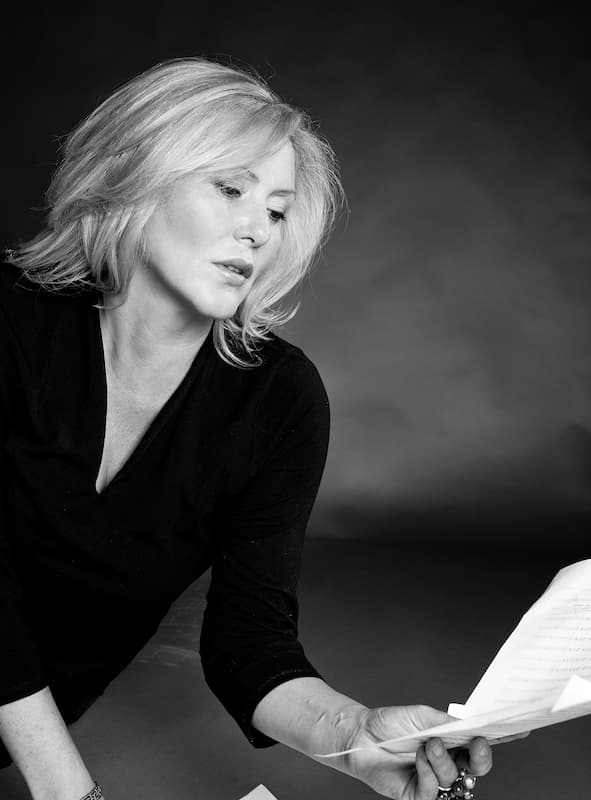
How challenging is it to work on such a demanding project like Zeniteum, which brings together a large number of artists – an acting ensemble, an orchestra, a choir, dancers and acrobats?
It is a huge and honourable challenge, especially having in mind the time frame during which everything had to be composed, rehearsed, and produced.
What obstacles did you encounter while ‘paving’ the artistic way? Did you always know what you wanted to do and what awakened your desire to become a composer?
I started music school very young, I heard that there was a music kindergarten, so I asked my parents to enrol me; no one in my family was a musician – and then I became part of Olga Janković’s (mother of a cellist Ksenija Janković) class, who immediately understood that I like to play a composition, improvise and ‘composurize’ – that’s how I conjugated the verb to compose when I was six. Although I won awards playing the piano during my school years, I still decided to study composition, so I became a student of the recently deceased professor Srđan Hofman. These two professors played the most crucial role in my understanding of and dealing with music, they had such a sophisticated pedagogical approach – to teach me the ‘craft’, and at the same time get the most out of me. I also learned a lot from them about pedagogy, although I only realized that later. Some say that my star sign is in favour of the area I work in, but then again, I think that I would do anything just as good if that had been my decision. And I think the same goes for every other person. Work and dedication bring results in everything. I won’t mention talent, it goes without saying.
Is it more challenging to write music or work with students as a professor at the Faculty of Music? What is the most important thing you pass on to your students?
Everything is a challenge, and everything is a great pleasure. It cannot be compared with an ‘or’. My interests are wide, I would find it difficult to be satisfied with just one activity. I teach so-called group subjects with a continuous exchange of energy with the youth. I hope that they learn from me about what I teach, but also about life in general and that learning works both ways. Eyes and ears wide open, just like interests – waking up and deviating from stereotypes, of course with a look at what has already been created – that is something I always advise.
Your impressive biography is adorned with interesting projects, from the fact that you have performed an abundance of compositions in your home country and abroad, through the fact that you wrote music for the TV series Jesen stiže Dunja moja, you have collaborated with local pop musicians… How do you look at these achievements from this perspective? What did you have to give up for the sake of your career?
Honestly, I don’t look at it so dramatically, there is a lot of it, recognitions, explorations of different genres, jobs–- but that’s all that was, let’s move on, to what will be. I haven’t given up anything more special, than most people have, at least I don’t see it as giving up. Maybe my private life would be equally successful or unsuccessful with or without a career, who knows…
You create music of different genres. It seems that versatility and openness are necessary for artists to make music these days. What are your views on that?
I’m interested in everything related to music. Both artistic music, and applied, and also pop, and production… So I somehow combined everything into one – my music is both poly-stylistic and poly-genre – and you will surely recognize and hear that in this spectacle before us, Zeniteum :: 2022.
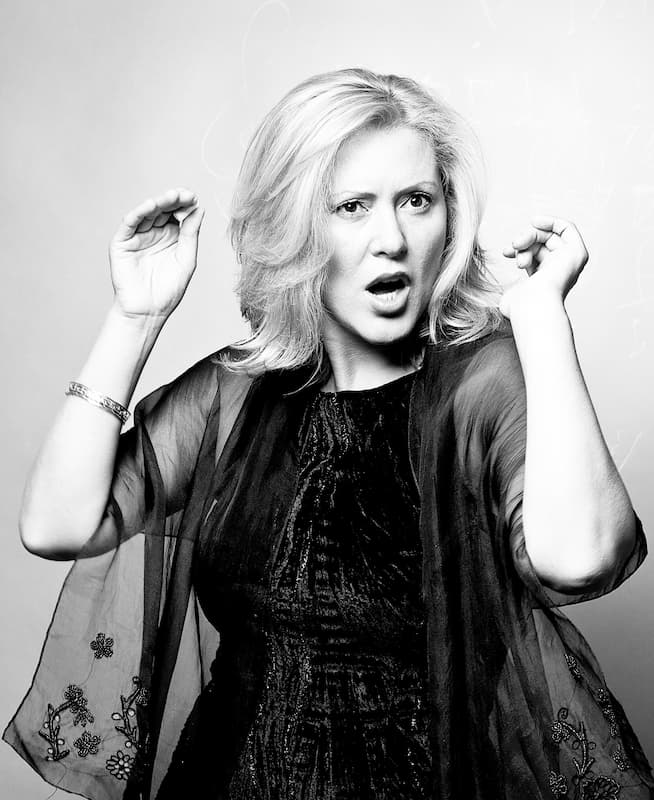
You have won several awards, including the Zlatna značka (Golden Badge) for your lasting contribution to the culture of Serbia. How inspiring are such awards, and are they incentives for further progress? Do they create additional responsibility?
It’s nice when someone recognizes your work and rewards it, it’s a nice feeling. Each award sets an additional responsibility – what’s next, will you qualitatively meet the expectations…? However, the greatest reward for a composer is that their compositions stand the test of time. Unfortunately, most of us will not experience this during our lifetimes. The awards are current, but the biggest award is the long life of the composition after the life of the composer ends.
From a professor’s, but also an extraordinary artist’s point of view, do you think that there is always room to learn something extra, regardless of how much experience someone has? What is the biggest achievement for you personally in your career so far?
You are always learning, for the rest of your life. The biggest achievement – it’s hard to say, maybe I’ve already ‘surpassed it’ without knowing, maybe it’s Zeniteum :: 2022, and maybe something I’m still expecting… Certainly, I consider my greatest achievement to be the desire of other musicians to perform my compositions and to want new ones.
What is your vision of Novi Sad as the European Capital of Culture? To what extent do the capacities of Serbian Athens justify this title?
This is a fantastic feat for Novi Sad – we live in a country that is not in the EU, so selecting Novi Sad as the European Capital of Culture means much more than the definition itself. Novi Sad will certainly justify that, there are amazing artists who, I hope, will become closer to Europe in this way, in terms of even greater recognition. I hope that the existing spatial capacities will be more than enough.
When you have the opportunity to come to Novi Sad, what events or favourite places do you always visit?
I like to walk through the centre of the city, Petrovaradin, I feel a sense of peace that is different from Belgrade, at least that is my impression, people are less nervous and kinder. I never miss a good concert, nor good company.


